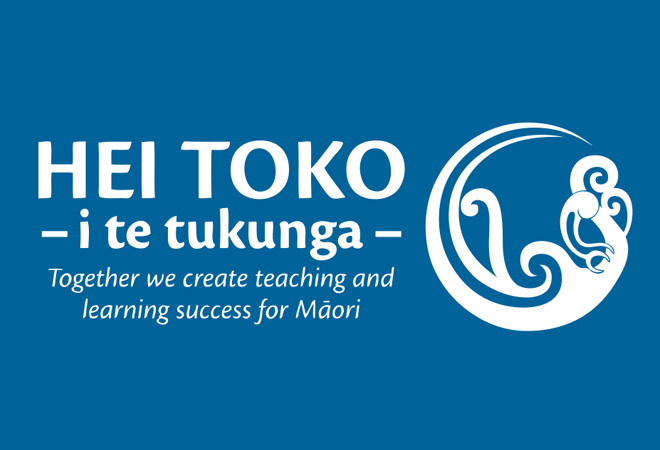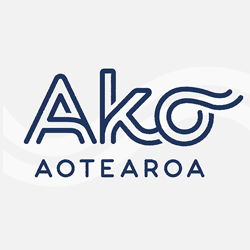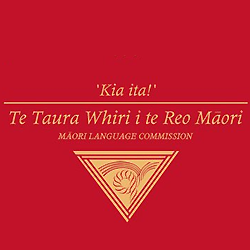
Hei Toko i Te Tukunga - Enabling Māori Learner Success
Status
Completed: 20 October 2015
Project Details
An 18-month project, completed in 2015, to introduce tertiary educators to the design and evaluation of teaching strategies and practices that lead to enhanced outcomes for Māori learners. A collaboration of Ako Aotearoa, Te Taura Whiri i te reo Māori (Māori Language Commission) and the Tertiary Education Commission (TEC).
Aims:
The main aims of the project were to:
- assist tertiary education organisations by supporting educators to develop and embed an evaluative approach to kaupapa Māori teaching and learning good practice
- enable organisations to develop a kaupapa Māori-based formative evaluation approach that is relevant to their organisation context
- provide support to educators to implement Focus Area Four of Ka Hikitia – Accelerating Success 2013 – 2017 (the Māori Education Strategy), which sets out four goals for tertiary education.
Methodology:
The project methodology involved:
- a review of the literature
- developing a resource to enable tertiary educators to describe Kaupapa Māori-based good education practice in their unique context
- trialling the resource with several groups representing a number of providers and education roles from the tertiary education sector as well as learners.
Team

Tama Kirikiri
Ako Aotearoa
Ngāhiwi Apanui
Te Taura Whiri i te reo Māori (Māori Language Commission)Status
Funding
$107,500.00 (excl GST)
Key Findings
The key findings from the project included:
- Hei Toko is a Kaupapa Māori framework for tertiary educators working with Māori learners. It allows for the description and evaluation of Kaupapa Māori good practice for: an organisation; a board; a department; individual educators (CEO, manager, dean, HOD, teacher, teacher developer and others).
- The Hei Toko project confirmed that good Kaupapa Māori-based education practice needs to be learner centred, whole-of-organisation, dynamic, responsive and highly adaptive to meet the demands of our highly contextualised and fluid tertiary education sector.
- The project identified that a whole of organisation approach is required to create sustainable change for Māori learners. Pockets of teaching excellence across the tertiary education sector are more often the result of committed individuals and groups rather than a consequence of proactive organisational commitment.
- There is compelling evidence from a number of past and recent studies that Kaupapa Māori-based good education practice is an effective means of establishing an organisational environment that enables Māori learner success. Given the range of contexts in Aotearoa New Zealand tertiary education and the need to engage all tertiary educators in enabling Māori learner success, the project team developed a resource that seeks to empower tertiary educators to describe Kaupapa Māori-based good education practice in their unique context.
- Hei Toko is a table-based resource comprising six key components: Kaupapa – principle; Whakamārama – explanation; Ritenga Whakaako – practice; Taunaki – evidence; Te Puna – source; Ngā Hua – indicators. Although kaupapa or principles are interrelated, Hei Toko addresses one kaupapa at a time. By participating in the workshop developed as part of the project work, organisations are stepped through the design process in a way that enables the approach to be tailored to their organisation capability and aspirations, and to fit with their learner contexts and aspirations.
Key Recommendations
The key recommendations and implications from the project included:
Meeting diverse tertiary education contexts | Māori learners study at all levels of the Qualifications Framework across all subsectors of the tertiary education sector – from foundation-level to university-level study. Māori learners are therefore learning in diverse tertiary education contexts across a range of providers and interacting with a range of tertiary educators. Each of these contexts has unique characteristics that must be considered when seeking to change the education system to enhance outcomes for Māori learners.
Enhancing outcomes for Māori learners | The approach to enhancing outcomes for Māori learners must affect and include all staff. The learning that takes place in the classroom is not enough on its own to generate the sustainable change that is required. Every level of the organisation from governance through to academic leaders, teachers, student support, managers and administrators has a part to play in creating an environment that will sustainably enhance outcomes for Māori learners.
Motivating non-Māori educators | It is not only Māori staff who have a responsibility to engage and participate with Kaupapa Māori frameworks. The challenge for the sector and Hei Toko is to also motivate and engage non-Māori tertiary educators to work with these Kaupapa Māori concepts in a meaningful way.
Providing safe environments | Tertiary providers must consider their role in providing safe environments for their respective staff to utilise a Kaupapa Māori framework so that staff, in turn, can be empowered and feel comfortable operating in a Māori space.
Data collection systems | In order for data collection systems to be of use and value to Māori in tertiary education, these systems need to consider and effectively integrate indicators of Kaupapa Māori-based good practice including: Toko ā-iwi, ā-wānanga – iwi and institutional support; Tikanga – the integration of Māori and iwi values and protocols; Pūkenga – the involvement of suitably qualified leadership and staff; Ako – the development of effective teaching and learning strategies.
A research report prepared by Ngāhiwi Apanui and Tama Kirikiri.
(PDF, 5.1 MB, 72-pages).
- 20 October 2015